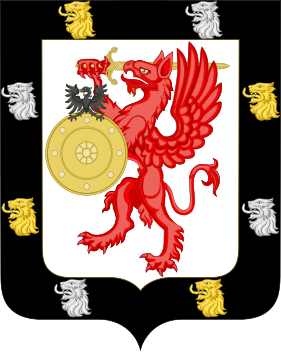
The House of Romanov was the reigning imperial house of Russia from 1613 to 1917.

Perseverance of the saints is a Christian teaching that asserts that once a person is truly "born of God" or "regenerated" by the indwelling of the Holy Spirit, they will continue doing good works and believing in God until the end of their life.

Carl Gustaf Verner von Heidenstam was a Swedish poet, novelist and laureate of the Nobel Prize in Literature in 1916. He was a member of the Swedish Academy from 1912. His poems and prose work are filled with a great joy of life, sometimes imbued with a love of Swedish history and scenery, particularly its physical aspects.
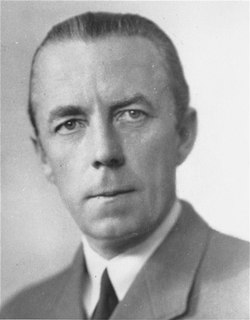
Folke Bernadotte, Count of Wisborg was a Swedish nobleman and diplomat. In World War II he negotiated the release of about 31,000 prisoners from German concentration camps, including 450 Danish Jews from the Theresienstadt camp. They were released on 14 April 1945. In 1945 he received a German surrender offer from Heinrich Himmler, though the offer was ultimately rejected.

Carl XVI Gustaf is King of Sweden. He ascended the throne on the death of his grandfather, King Gustaf VI Adolf, on 15 September 1973.

The House of Bernadotte is the royal house of Sweden, since its foundation in 1818. It was also the royal house of Norway between 1818 and 1905. Its founder Charles XIV John of Sweden, was born in Pau in southern France as Jean Bernadotte. Bernadotte, who had been made a brigadier general for his service in the French Royal Army during the French Revolution, was adopted by the elderly King Charles XIII of Sweden, who had no other heir and whose Holstein-Gottorp branch of the House of Oldenburg thus was soon to be extinct on the Swedish throne.
An heir apparent is a person who is first in an order of succession and cannot be displaced from inheriting by the birth of another person. An heir presumptive, by contrast, is someone who is first in line to inherit a title but who can be displaced by the birth of a more eligible heir.

Hrólfr Kraki, Hroðulf, Rolfo, Roluo, Rolf Krage was a semi-legendary Danish king who appears in both Anglo-Saxon and Scandinavian tradition.
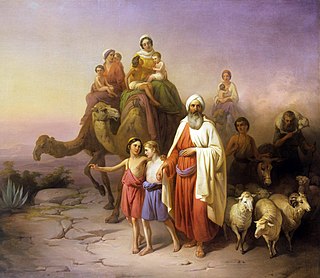
Fear and Trembling is a philosophical work by Søren Kierkegaard, published in 1843 under the pseudonym Johannes de silentio. The title is a reference to a line from Philippians 2:12, "...continue to work out your salvation with fear and trembling." — itself a probable reference to Psalms 55:5, "Fear and trembling came upon me..."

Count of Wisborg is a title granted by the monarchs of Luxembourg to some men formerly titled as princes of Sweden and their descendants.

Eric IX,, also called Eric the Holy, Saint Eric, and Eric the Lawgiver, was a Swedish king in the 12th century, c. 1156–1160. The Roman Martyrology of the Catholic Church names him as a saint memorialized on 18 May. He was the founder of the House of Eric, which ruled Sweden with interruptions from c. 1156 to 1250.

Eric "X" was the King of Sweden between 1208 and 1216. Also known as Eric the Survivor, he was, at his accession to the throne, the only remaining son of King Canute I of Sweden and his queen. The name of his mother is not known, but may have been Cecilia.

Helgi Hundingsbane is a hero in Norse sagas. Helgi appears in Volsunga saga and in two lays in the Poetic Edda named Helgakviða Hundingsbana I and Helgakviða Hundingsbana II. The Poetic Edda relates that Helgi and his mistress Sigrún were Helgi Hjörvarðsson and Sváva of the Helgakviða Hjörvarðssonar reborn. They were once again reborn as Helgi Haddingjaskati and Kára whose story survives as a part of the Hrómundar saga Gripssonar.
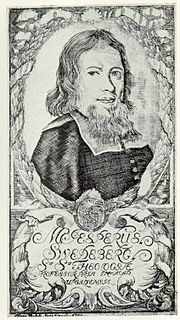
Jesper Swedberg was a bishop of Skara, Sweden. He was one of Sweden's most notable churchmen. He published the first edition ever of a Swedish book of hymns in 1694, and was the father of scientist and mystic Emanuel Swedenborg.
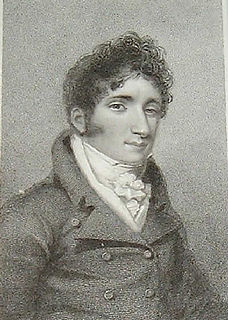
John Braham was an English tenor opera singer born in London. His long career led him to become one of Europe's leading opera stars. He also wrote a number of songs, of minor importance, although "The Death of Nelson" is still remembered. His success, and that of his offspring in marrying into the British aristocracy, are also notable examples of Jewish social mobility in the early 19th century.
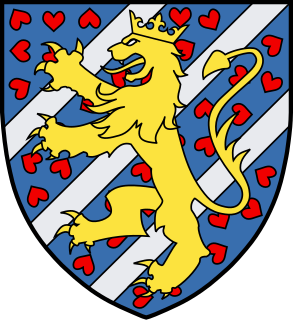
The House of Bjelbo, also known as the House of Folkung (Folkungaätten), was an Ostrogothian Swedish family that provided several medieval Swedish bishops, jarls and kings. It also provided three kings of Norway, and one king of Denmark in the 14th century.
Magnus Minniskiöld was a medieval Swedish magnate from the House of Bjelbo. For posterity, he is best known as the father of the renowned statesman Birger Jarl, and the ancestor of the later Swedish kings. He is sometimes believed to have perished in the Battle of Lena in 1208, though the evidence is not conclusive.
The Tolkien family is an English family of German descent whose best-known member is J. R. R. Tolkien, Oxford academic and author of the fantasy books The Hobbit, The Lord of the Rings and The Silmarillion.
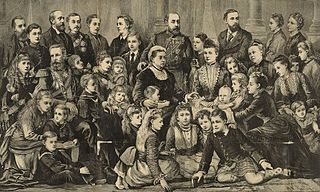
Queen Victoria, the British monarch from 1837 to 1901, and Prince Albert had 9 children, 42 grandchildren, and 87 great-grandchildren.
Stukely Westcott was one of the founding settlers of the Colony of Rhode Island and Providence Plantations and one of the original members of the first Baptist Church in America, established by Roger Williams in 1638. He came to New England from the town of Yeovil in Somerset, England and first settled in Salem in the Massachusetts Bay Colony, but difficulties with the authorities prompted him to join Roger Williams in settling near the Narragansett Bay in 1638 at Providence Plantations. He remained there for a few years, but he was recorded as an inhabitant of Warwick in 1648, probably having settled there several years earlier. He was most active in colonial affairs from 1650 to 1660 when he was a commissioner, surveyor of highways, and the keeper of a house of entertainment. His highest offices were as an Assistant in 1653 and much later as a deputy to the General Court in 1671 when he was almost 80 years old. He made his will on January 12, 1677 but died the same day with it unsigned, leaving his affairs in limbo for the following two decades.
















